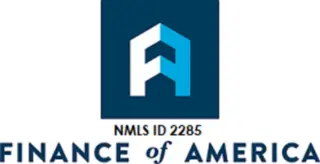Is a Reverse Mortgage a Good Idea?
Ever since the federal government introduced the reverse mortgage program in the late 80s, it has been the subject of discussion around its potential benefits and drawbacks. On the one hand, they can be a valuable source of income for older homeowners who are equity-rich but cash-poor. On the other hand, there can be unintended consequences if the details of how reverse mortgages work aren’t entirely understood.
As with any financial decision, seniors should learn about and carefully consider their options to determine what course of action best fits their needs. These are the more common situations where a reverse mortgage can be a good idea — and when they aren’t.
What is a reverse mortgage?
A Home Equity Conversion Mortgage (HECM), more commonly known as a reverse mortgage, is a type of home loan insured by the Federal Housing Administration (FHA) and provided by FHA-approved banks and mortgage lenders. They are specifically designed for older homeowners (62+) who have built up significant home equity or own their homes outright and want to convert that equity into cash.
There are three other types of reverse mortgages. These include:
- HECM for Purchase: A HECM for purchase is an option where you take out a reverse mortgage on a new house to help cover its purchase cost. It is ideal for those homeowners seeking to downsize or find a residence better suited to their current needs. It’s also insured by the FHA.
- Proprietary reverse mortgage: These loans are not insured by the FHA and are offered by private lenders. They’re also called jumbo reverse mortgages because they have higher loan limits than traditional HECMs.
- Single Purpose Reverse Mortgage: As the name implies, this kind of reverse mortgage is designed to be used for a specific purpose, such as making home improvements or paying a medical bill. They are not FHA-insured and are typically offered by state and local governments.
One of the biggest advantages of reverse mortgages is that the homeowner doesn’t have to start repaying the loan immediately. Instead, the loan principal plus interest becomes due once they no longer live in the home full-time or fail to meet the loan’s terms.
There are age and other requirements to be eligible for the program, including attending independent counseling sessions and adequately maintaining the property. Our guide on what a reverse mortgage is and how it works provides the details you should know before applying for this type of loan.
When is a reverse mortgage a good idea?
Reverse mortgages are a good idea if you plan on remaining in your house long-term and do not intend to leave it to your heirs. Also, a reverse mortgage is a good decision if you know you’ll be able to meet the requirements established by the program continuously.
You plan on staying in your house long-term
A reverse mortgage becomes due when you leave your house for whatever reason, such as moving into an assisted living facility or you pass away. Like a regular mortgage, there are considerable fees and closing costs associated with a reverse mortgage, so getting one doesn’t make sense if you plan on moving soon.
The home must be your primary residence. If you do not live in the home for more than six months, the loan will become due unless your absence is because of medical reasons. In the latter case, you repay the loan if you don’t live in your home for more than a year.
You can meet the reverse mortgage requirements
As a homeowner, you will need to be able to meet the basic reverse mortgage requirements for the loan to be viable. If you cannot keep up on property taxes and homeowners insurance, it represents a risk to the lender, and they could say you defaulted on the terms and demand repayment of the HECM. Similarly, if you do not adequately maintain your property, it could cause it to lose value and cause the lender to call the loan.
Leaving the home to your heirs is not a priority
If you do not intend to leave your house to your heirs, or you don’t have any heirs in the first place, a reverse mortgage is a viable option if you are 62 or older and need cash.
The loan will become due once you pass away. Your heirs will be responsible for paying the reverse mortgage if they want to keep the home. They can repay the loan, plus interest, with their own funds or convert the reverse mortgage to a conventional loan. They can also sell the property to cover the balance due. If the balance on the HECM is less than the selling price, they keep the difference.
When is a reverse mortgage a bad idea?
A reverse mortgage can be a bad idea if it doesn’t meet your financial needs or causes significant problems for others in your life. Spouses, family and friends can be negatively affected. It could also be a bad move if you are experiencing health issues that could require long hospitalizations.
Your spouse is not 62
If your spouse is not yet 62, they cannot be a co-borrower on the reverse mortgage. Although there are protections in place so that your spouse will not have to leave the home if you die before them, they will no longer be able to collect funds from the HECM. This could be problematic if your spouse counts on this money to survive.
In addition, your surviving spouse must continue to meet the loan requirements, including paying property taxes and homeowners insurance and maintaining the home properly.
You have dependents living with you
If you have friends and family living with you, they do not have protections similar to those of a non-borrowing spouse. They will have to vacate the dwelling if you die or leave the home for more than 12 months.
You have a long-term illness requiring specialized care
A reverse mortgage is most beneficial when the borrower can stay in the home long-term. Seniors with health issues may consider a reverse mortgage to cover medical expenses. As long as you can remain in the home, the extra cash can be beneficial
However, age-related medical issues can often become severe enough for the senior to have to move to a medical or assisted living facility, or with family. If you know you will soon have to be out of your home for more than a year, a reverse mortgage doesn’t make sense.
You want to avoid complications for your heirs
Keep adult children fully informed of what the reverse mortgage entails. Although it is a financial decision for the homeowner to make alone, heirs should be aware of what will be required of them should they desire to keep the house once their parents have died or moved out permanently.
If your heirs want to keep the home, they must pay off the HECM in full. This could be a heavy lift, especially if the borrower had a variable rate reverse mortgage and had been drawing funds for a considerable time. However, because the loan is FHA-insured, heirs would not have to pay more than the house's appraised value.
However, if they cannot afford to pay back the reverse mortgage, they most likely will have to sell the house to repay it. This could significantly reduce the money they could receive from the estate and could be a problem if they were counting on an inheritance for any reason.
Reverse Mortgage Alternatives
There are other ways to tap into your home’s equity if you need money. They differ from reverse mortgages in that they are all traditional forward loans you must pay back in installments or as you use a credit line.
Home equity loan
A home equity loan is a second mortgage. You borrow a lump sum against the equity you’ve built up in your house. All the usual fees and costs associated with a traditional mortgage will apply, and you will have to keep up on the monthly home equity loan payment and your first mortgage payment. Generally, borrowers will need at least 20% in home equity to apply for this product.
Home equity line of credit (HELOC)
A HELOC also allows you to borrow money using your home as collateral. However, a HELOC differs from a home equity loan because it functions as a credit line that the borrower can access during a specified draw period, not a loan with constant monthly payments. Like a credit card, repaying the borrowed amount replenishes the available credit. Also, unlike a home equity loan, homeowners only have to pay interest on the amount drawn from the line.
Cash-out refinance
Refinancing your mortgage is when you replace your current mortgage with a new one, typically with more favorable terms. With a cash-out refinance, a portion of your home equity is released to you as cash and bundled into the new loan balance. Unlike a home equity loan or HELOC, a cash-out refinance provides the extra funds but allows you to still retain one monthly payment.
Summary of Money’s Is a Reverse Mortgage a Good Idea?
A reverse mortgage can be a good idea if you want to age in place and meet all the reverse mortgage program requirements. Additionally, you should be confident you’ll be able to stay in your home long-term to maximize the financial benefits. It might not be such a great idea if you have impending health issues, your spouse is not yet 62, you have friends or family living in the house with you, or you want to pass your home on to your heirs with as little financial burden as possible.





